“Imagine a world where there is no donor organ shortage, where victims of spinal cord injuries can walk, and where weakened hearts are replaced. This is the long-term promise of regenerative medicine.” —National Institutes of Health

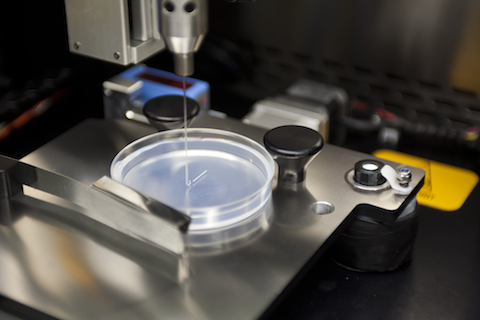
University 3D Bioprinter
Got a 3D printer? We're ensuring top medical labs do.
View Project Details >
Organovo, a breakthrough biotech company that Methuselah has backed since its inception, was uplisted
to the New York Stock Exchange (ONVO) in 2013. We're so optimistic about the potential impacts of its
3D tissue printing technology on cutting-edge biomedical research, we've initiated a partnership to
help get more Organovo printers into prominent labs.
Under this program, Methuselah is donating at least $500,000 in direct funding for bioprinter research
projects, to be divided among several institutions. This funding will cover budgeted bioprinter costs,
as well as other aspects of project execution. Organovo is participating in selecting the best candidate
institutions from all those that apply, and funding will commence as soon as selection is complete.
According to Organovo CEO Keith Murphy, “Organovo's technology has broad potential application in the
life sciences. The opportunity to allow those working towards significant breakthroughs in organ
bioprinting to use the NovoGen MMX bioprinter is exciting, and we're happy to be able to establish this
joint effort with Methuselah Foundation to enable greater access to Organovo's powerful platform.”
One expected outcome from the program is a greater set of preliminary results to justify the granting of
additional government research grants in the 3D bioprinting space. Together, Methuselah and Organovo are
confident that this can become a springboard for much broader productive use of bioprinting in
regenerative medicine.
For more information about this program, please email
3dprinters@mfoundation.org.

In July 2013, Methuselah awarded $5,000 to Dr. L. Stephen Coles, co-founder and Executive Director of the
Gerontology Research Group
and a prominent researcher on supercentenarians (people aged at least 110).
This grant, in support of Dr. Coles's own pancreatic cancer treatment, will also provide for an accompanying
study of new methods of personalized gene sequencing and pre-testing of potential chemotherapy courses in
immunodeficient mouse models. The research is being carried out under the auspices of
Champions Oncology of Baltimore, MD, and
promises to shed light on new prospects for the future of cancer care.
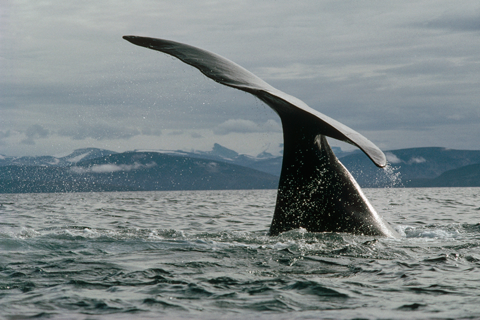
Bowhead Whales
Bowhead whales live for over 200 years. We want to find out why.
View Project Details >
Given the declining costs of DNA sequencing, all kinds of research that used to be prohibitively
expensive even a few years ago is now becoming possible. For example, we recently awarded a
$10,000 research grant to Dr. Joao Pedro de Magelhaes at the University of Liverpool to sequence the
genome of the bowhead whale in order to study mechanisms for longevity in this warm-blooded mammal
whose lifespan is estimated at over 200 years.
Not only are bowhead whales far longer-lived than humans, but their massive size means that they are
likely to possess unique tumor suppression mechanisms. “These mechanisms for the longevity and
resistance to aging-related diseases of bowhead whales are unknown,” says Dr. de Magelhaes,
“but it is clear that in order to live so long, these animals must possess aging prevention
mechanisms related to cancer, immunosenescence, neurodegenerative diseases, and cardiovascular and
metabolic diseases.”
The bowhead whale study will be conducted at the state-of-the-art
Liverpool Centre for Genomic
Research and results will be
made available to the research community.
Learn More >

Methuselah Foundation created a stir in the research community by introducing the Methuselah Mouse
Prize (MPrize) in 2003. The MPrize was designed to directly accelerate the development of
revolutionary new life extension therapies by awarding two cash prizes: one to the research
team that broke the world record for the oldest-ever mouse; and one to the team that developed
the most successful late-onset rejuvenation strategy.
Why mice? Mice are genetically similar to humans. They are small and inexpensive to maintain so studying
large quantities is feasible. Their short lifespan, about three years, makes it possible to see if
interventions result in longer, healthier lives — all in time to be of benefit to our own lives.
Through programs like the MPrize, we've helped change the conversation on aging and longevity,
lending credibility and prestige to areas of research that once were openly frowned upon. Previous winners
have already proven that healthy life can be extended; more wins are possible by researchers who can best
previous winners' performances, and each new winner pushes the outer limits of healthy life back even further.
At present, $1.4 million is available for awarding. For more information about the MPrize and
to inquire about entering the competition, please email
mprize@mfoundation.org.
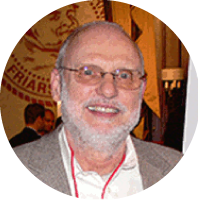
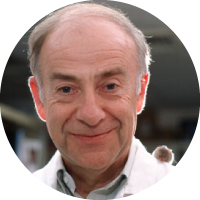
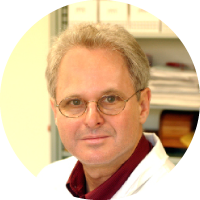




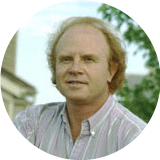



Previous Awards
The MPrize for longevity was first won by a team led by Dr. Andrzej Bartke of Southern Illinois University. The prize for rejuvenation first went to Dr. Stephen Spindler of the University of California. Additionally, in 2009, the first Special Mprize Lifespan Achievement Award went to Dr. Z. Dave Sharp for the successful healthy life extension of already aged mice using a pharmaceutical, rapamycin.


Advisors

DR. Andrzej Bartke
Director, Southern Illinois University Aging & Longevity Research Laboratory

DR. Craig Cooney
Assistant Professor, University of Arkansas for Medical Sciences

DR. Huber Warner
Associate Dean for Research, University of Minnesota

DR. Don Ingram
Professor, Pennington Biomedical Research Center

DR. Tom Johnson
Professor of Behavioral Genetics, University of Colorado at Boulder

DR. Christiaan Leeuwenburgh
Professor and Chief, Division of Biology of Aging, University of Florida

DR. John Speakman
Director, Institute of Biological and Environmental Sciences, University of Aberdeen
